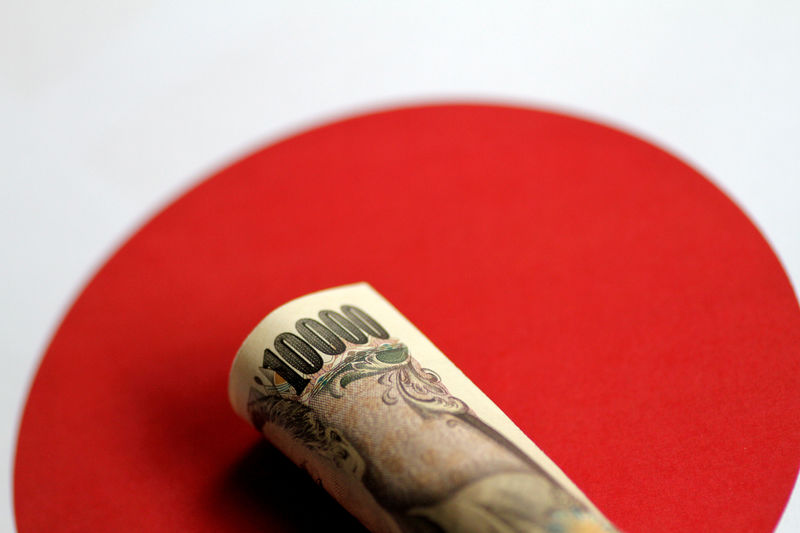By Wayne Cole
SYDNEY (Reuters) - The safe-haven yen climbed and the yuan slid on Monday after U.S. President Donald Trump threatened to increase tariffs on China, sending riskier assets into a spin and slamming stock futures.
Trump on Sunday increased pressure on China to reach a trade deal by announcing he will hike U.S. tariffs on $200 billion worth of Chinese goods this week and target hundreds of billions more soon.
The announcement via Twitter marked a major shift in tone from Trump, who has cited good progress in trade talks and praised his relationship with Chinese President Xi Jinping.
The Wall Street Journal reported sources saying Beijing might cancel talks with their U.S. counterparts in Washington planned for Wednesday.
Investors responded by bidding up the yen, which is considered a safe harbor in times of stress given Japan's status as the world's largest creditor and its huge hoard of assets abroad.
The dollar eased to 110.65 yen on the WSJ report. Earlier it touched a five-week trough at 110.53 on Reuters dealing, after ending Friday around 111.12.
The market was again thin as Japan remains on holiday, though China is back from its break.
The euro hit its lowest since January around 123.44 yen and was last at 123.75. The single currency was steady on the dollar at $1.1185, while the dollar index was a fraction firmer at 97.548.
The dollar climbed 1 percent on the Chinese yuan to 6.8038.
The Australian dollar took a spill given the country's exposure to Chinese trade and lost around 0.6 percent at one stage to $0.6960. It was last down at $0.6972.
"An increase in tariffs would be bad news for risk assets and would threaten the prospect of a global growth recovery," said Rodrigo Catril, a senior FX strategist at NAB.
"AUD and NZD are lower at the open as we await for Asian markets to open," he added. "An aggressive response from China that halts current negotiations, with higher tariffs by the end of the week would be a disaster for risk assets."
ART OF THE DEAL?
As a taste of what was to come, E-Mini futures for the S&P 500 slid 1.7 percent in and Treasury futures jumped 18 ticks. Nikkei futures were down 2 percent at 22,050, though the cash market will not open until Tuesday.
The U.S. dollar had already softened on Friday when jobs data beat expectations but a soft reading for wages meant the Federal Reserve could afford to stay patient on policy.
The futures market on Monday moved to price in an even greater chance of a rate cut this year as Trump's tariff warnings was seen as a risk to the global economy and business sentiment.
Futures imply a funds rate around 2.220 percent by December compared to the current effective rate of 2.40 percent.
"Investors will be hoping that this step by the president is more of a negotiating tactic than a statement of intent," said Nick Twidale, chief operating officer at broker Rakuten.

"Any signs that a deal will be pushed further down the track or not progress at all could send markets into a tailspin."